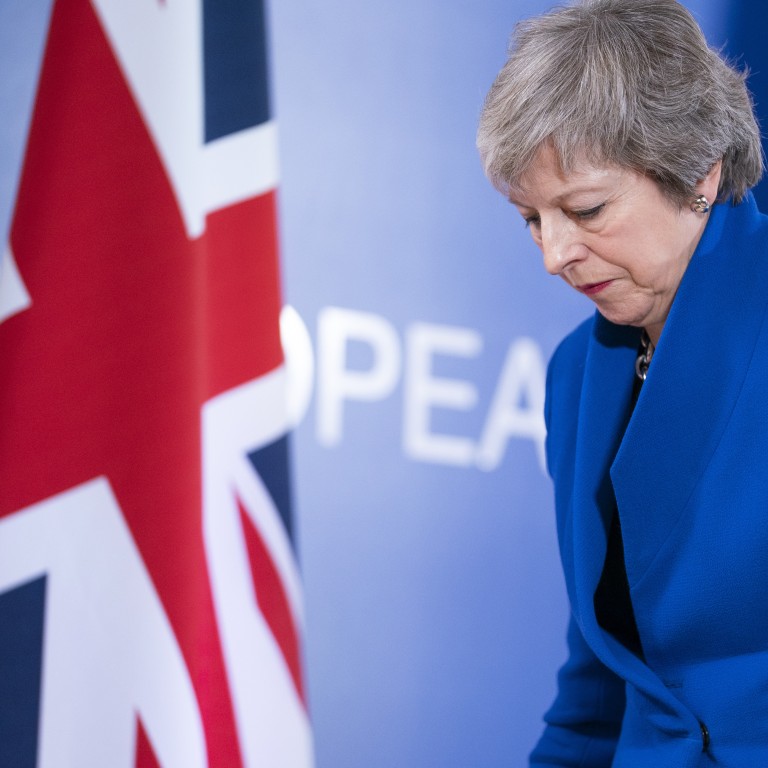
Brexit defeat for Theresa May should mark turning point in British crisis
- Heavy defeat leaves prime minister’s plan for her country’s departure from the European Union in tatters, and another referendum may be the only way to settle the issue
The historic vote by British lawmakers on Theresa May’s Brexit deal was widely expected to result in defeat for the prime minister. But the overwhelming loss, by 230 votes, leaves her vision for the country’s departure from the European Union in tatters. After two years of divisive debate, Britain is no closer to reaching a consensus on the way forward. Time is running out, with the deadline for Brexit only 10 weeks away. A new approach is needed to end the crisis.
May’s deal, forged after two years of difficult negotiations with the EU, was defeated by 432 votes to 202. It is the biggest parliamentary loss by a British government for more than 100 years. The deal was, necessarily, a compromise. It was an attempt to find a pragmatic solution acceptable to both the EU and British members of parliament. Ultimately, this proved to be impossible and was rejected by MPs on both sides of the Brexit divide. Brexit supporters condemned it for keeping Britain too close to the EU, and those who oppose Brexit saw rejection of the deal as a way of possibly keeping the country in the EU after all. Both sides were concerned that the deal would leave Britain tied to Europe indefinitely, with no say over how the EU is governed. In the end, supporters and opponents of Brexit lined up together to vote down May’s deal.
‘Basically dead’: Brexit in chaos as British MPs reject May’s deal with EU
The size of the defeat on such an important vote would normally bring down the government. Opposition leader Jeremy Corbyn was quick to table a no-confidence motion. Now, a way forward must be found. Even in the wake of this heavy defeat, May appears to be sticking to her view of what Brexit means. She must be more flexible, and has signalled she will discuss matters with MPs before going back to the EU for further talks. But the EU is very unlikely to make concessions sufficient to appease parliament.
Cross-party talks are needed in an attempt to forge a consensus, but given the sharp differences in opinion, this may not be enough. Britain should now ask the EU for an extension of the Brexit deadline. More time is clearly needed and a disastrous exit without a deal must be avoided. Another referendum may well be necessary if the impasse is to end as Brexit began with a narrow vote in favour of departure in 2016. May has resisted calls for a second referendum. Corbyn, too, has been reluctant to support such a move. Another referendum would come with its own risks and may not deliver a clear result. However, returning to the people may be the only way of settling the matter. The first vote was a leap in the dark and much has happened since then.
A way must be found out of this Brexit mess. The defeat of May’s deal brings yet more uncertainty. But her defeat should mark a turning point and spark renewed efforts to find a resolution.

